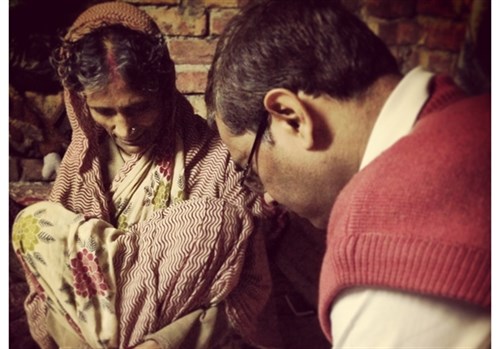People in pain – calling for improved global access to controlled medications
Each year over 18 million people around the world die in pain without access to essential medicines.
26 Mar 2016Mrs Thakur* went to a government hospital with an 8cm cancerous lump in her breast. The doctor she saw told her the cancer was too advanced and sent her home with a prescription of paracetamol, saying: “There is nothing more we can do.”
Her husband found out by chance about a palliative care clinic in the area. He visited the healthcare staff there, saying his wife could not come because she was in too much pain. The doctors gave Mr Thakur some painkillers from the clinic, and arranged a home visit for the following week.

Palliative care is an approach which cares for people with life threatening or life limiting illness and their families. Palliative care teams address physical pain and symptoms, as well as offering social, psychological and spiritual care.
Mrs Thakur was only 30 years old, suffering from advanced breast cancer. She was in so much pain that she could not sit up, sleep, eat, or drink. The palliative care doctor gave her an injection of a painkiller, antiemetic, and sedatives, which he used as a substitute for morphine.
In Kolkata, India, where the Thakurs live, and in much of the rest of the world, morphine and other opioid pain medications are very difficult to access. This is because of regulatory barriers such as unduly restrictive laws, attitudinal factors such as concerns about addiction and reluctance to prescribe or stock these medicines, or insufficient training for health professionals.
Click here to read the full article
Doctors can lead the way to healthier drug policies – join IDHDP now
Share this on: